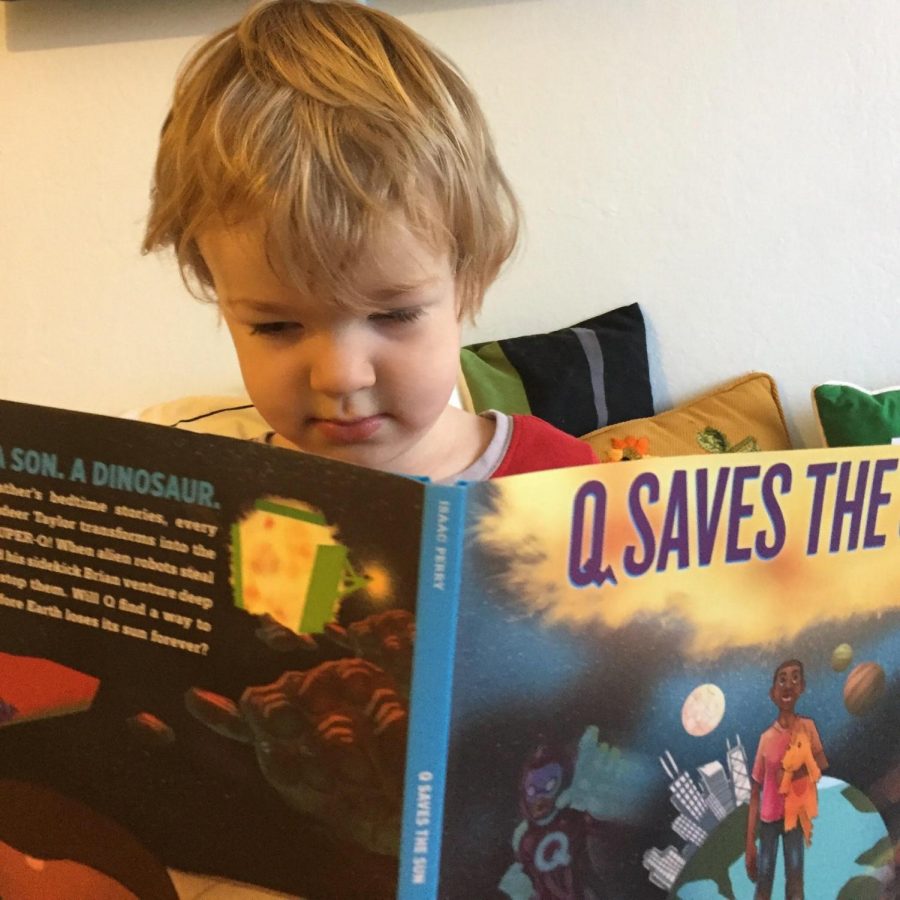Local publishing company shows diversity through children’s books
Chicago’s Tiger Stripe Publishing, which aims to create diverse children’s books, is currently developing seven projects, its largest production since it opened.
April 17, 2017
Searching nearby libraries and bookstores, Joy Triche was on a mission to find books that depicted protagonists with whom her three children could identify.
Disappointed in her findings, Triche found only a limited selection of books that celebrated diversity and children of color. Knowing the importance of children seeing themselves represented in books, Triche decided to take matters into her own hands and create Tiger Stripe Publishing Company.
Since opening her business in 2014 in her Hyde Park home, Triche has published two stories, “Q Saves the Sun” by Isaac Perry, in December 2014, and “How I Became We” by Raquel Monroe, associate professor in the Dance department, in September 2016. This year, Tiger Stripe Publishing has seven projects in development, the company’s largest scheduled.
“My mission really is to publish books that celebrate diverse characters,” Triche said. “That was inspired by my own children. As a black family, I wanted to find books reflecting my children.”
Originally writing the narrative in 2009 for a yoga philosophy class, Monroe sent her book to Triche, a childhood friend, and Tiger Stripe Publishing for consideration.
Monroe wanted to write about ego and what happens to the body when people believe the misconception that having more material possessions makes people happier. She also wanted to express gender diversity, instead of focusing on character in her book she chose to use “I” with the letter printed in purple to make it more universal.
“When we are talking about diversity, we need to diversify across the board,” Monroe said. “We need to diversify in terms of gender, race, class, ability and sexuality. Children’s books have historically represented pretty much a white heteronormativity.”
When reading to her 4-year-old daughter, Monroe said she changes all the “he’s” to “she’s” because most characters she reads are male. She also noted that finding books about people of color is also difficult.
Acknowledging the lack of diversity in books, the Office of Intellectual Freedom within the American Library Association established the Our Voices board in 2016. Its mission is to help bring diverse books into the library system, according to Triche.
Jeff Deutsch, director of Chicago-based Seminary Co-op Bookstores and board member of Our Voices, said the initiative recognizes the difficulty that book buyers and librarians have distributing diverse content to readers.
“[Our Voices] initiative is about finding a way for not just diverse books because the larger publishers have done a nice job in trying to bring more diverse books out to the world,” he said. “But for diverse publishers and voices, that might not otherwise be heard.”
Noting the excited expressions on children’s faces when they read Tiger Stripe’s books, Triche recalled one child who sat down right in front of her table at a book fair and avidly read the entire book.
“It is important that children see themselves in their books; it helps to have a connection to a character and then be able to think about what might be possible outside of yourself,” Triche said. “It is not just diverse children that need it, it is for all races and colors to see others doing different things.”








